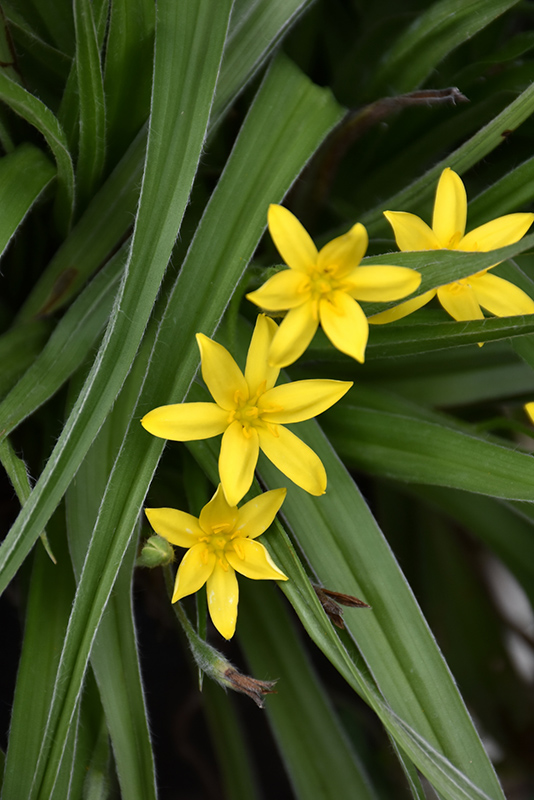Plant Finder
Height: 8 inches
Spread: 12 inches
Sunlight:
![]()
![]()
![]()
Hardiness Zone: 5a
Other Names: Yellow Star-grass, Eastern Yellow Star-grass
Description:
This perennial wildflower presents a rosette of hairy, grassy leaves emerging from a small corm; yellow, star shaped blooms appear below the leaves in early to late spring and lasts a month; forms loose colonies, but not overly aggressive
Ornamental Features
Common Goldstar features dainty spikes of lightly-scented yellow star-shaped flowers with gold anthers at the ends of the stems from early to late spring. Its tomentose grassy leaves remain green in color throughout the season.
Landscape Attributes
Common Goldstar is an herbaceous perennial with an upright spreading habit of growth. Its relatively fine texture sets it apart from other garden plants with less refined foliage.
This is a relatively low maintenance plant, and may require the occasional pruning to look its best. It is a good choice for attracting bees and butterflies to your yard. It has no significant negative characteristics.
Common Goldstar is recommended for the following landscape applications;
- Rock/Alpine Gardens
- General Garden Use
- Groundcover
- Naturalizing And Woodland Gardens
Planting & Growing
Common Goldstar will grow to be about 8 inches tall at maturity, with a spread of 12 inches. Its foliage tends to remain low and dense right to the ground. It grows at a fast rate, and under ideal conditions can be expected to live for approximately 8 years. As an herbaceous perennial, this plant will usually die back to the crown each winter, and will regrow from the base each spring. Be careful not to disturb the crown in late winter when it may not be readily seen!
This plant performs well in both full sun and full shade. It is very adaptable to both dry and moist locations, and should do just fine under typical garden conditions. It is not particular as to soil type, but has a definite preference for acidic soils. It is somewhat tolerant of urban pollution. This species is native to parts of North America. It can be propagated by division.




